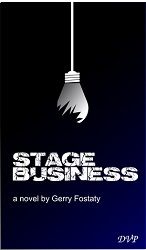Language is evolving. This is nothing new; language began to evolve when the first person grunted and another responded with a grunt. It grew somewhat since then, but think language peaked some time ago, and is now currently in a decline, and I am going to blame it on technology.
I was sitting next to an eighties-something woman in an office waiting room the other day. She felt she had to break the silence to tell me she disapproved of the fact that all but the two of us in the waiting room were on their phones, texting.
“What has happened to conversation?” she asked. I had no quick answer, but that didn’t matter. She was on a roll. “What will happen to their children?” She waved a hand in everyone’s general direction. “Will they communicate to their children that way?” I though this was rhetorical so I stayed mum. It wasn’t. She stared at me expecting an answer. “Well?”
I mistakenly told her that I, in fact, text my kids on occasion.
“There you go!” She threw up her hands in what I hope was defeat, and the end of the conversation. That wasn’t the end of it though. She launched into a diatribe on how she had confronted a store clerk the previous day about the correct use of “can” and “may”. The fool had asked her, “Can I help you?” He soon regretted his mistake. She beamed as she told me how she had harangued him.
I thought about is briefly, and decided that English is constantly evolving. What wasn’t acceptable yesterday may be perfectly acceptable today. We have (mostly) progressed beyond the aforementioned grunts, and in the last thousand years wrapped our lips and tongues around the likes of Chaucer, Shakespeare, Robert Burns, Lennon and McCartney, and Bob Marley. All of these are worthy wordsmiths and all of them, and others of course, inspired a gradual change of English.
But mass communication has opened up the throttle on the speed of change in our time. As radio and television became universal, words, phrases and idioms began to be adopted in regions where they weren’t native, and regional accents began to flatten and to resemble one another. English is beginning to lose its regional cultural bouquet. The most prominent exceptions, I think, are Australia and Scotland. But the biggest crime I thought, was the text message. Its necessary use of acronyms and almost coded short forms is unprecedented—until I remembered using a TELEX machine back in the seventies. Teachers and university professors frequently slap their foreheads when they tell stories about students who use these text short forms in their research papers. (4 sure U know what I mean. LOL)
We all like to think we are immune to the influence of the media, advertising and technology, just like we all think we are above-average drivers. As I tapped out a message on my new smartphone in that waiting room, my phone prompted me with suggestions for words I might use in my text. It was great fun at first to let my new phone coach me, until I realized that my phone was changing the way I would have worded my note. I had become only the co-author of my message. I was witnessing the evolution of English at my fingertips.
It was then that my companion was called into the office with, “Ma’am, how can I help you?”
“See?” she said to me, “Can I help you, not may I help you . . .”
“How are you?” I asked her.
“Good,” she responded while rising from the chair.
“Not ‘well‘?” I smiled.
She paused, staring at me as only someone will who has been hoist in their own petard. Her lips thinned before she quickly turned and fled into the office.
Gerry Fostaty was an actor working in Canada for more than twenty years, and was seen on stage, in film and television. For his first novel, STAGE BUSINESS, published by Deux Voiliers Publishing in 2014, he drew on his experience in the theatre to create a soft mystery/thriller based in Toronto, and involves a group of actors. Gerry’s first book was AS YOU WERE: The Tragedy at Valcartier, a non-fiction account of a grenade accident on a Canadian Forces Base in 1974, published by Goose Lane Editions in 2011.
About Stage Business:
Michael Dion is an actor, not a detective, but when Amanda, his colleague, asks him to help her find Kyle, her friend's rebellious son, how can he refuse?
The gig turns out to be much more than Michael had bargained for. Kyle has fallen into the clutches of small-time drug dealers. Egged on by Amanda, Michael bluffs and blusters his way to secure the boy's release, but the thugs overreact, putting Michael's life at risk until his fellow actors come to his rescue.
The theatre professionals understand better than anyone about how perception masks reality, and use their expertise, as well as the narcissism and conceit of their adversaries, to rescue each other and the boy, and then passively exact their revenge.
Book Links
my review
my review



No comments:
Post a Comment